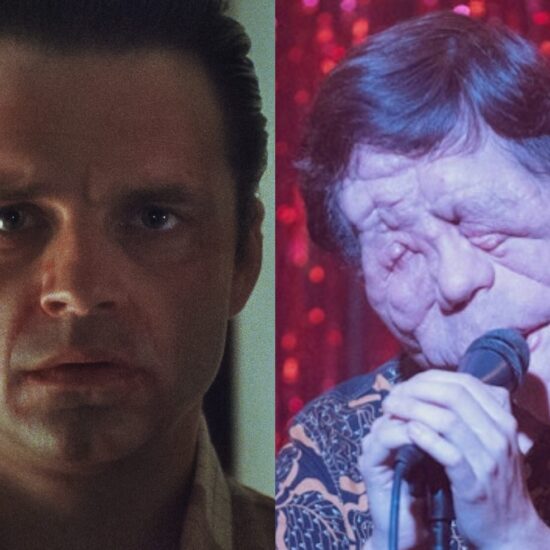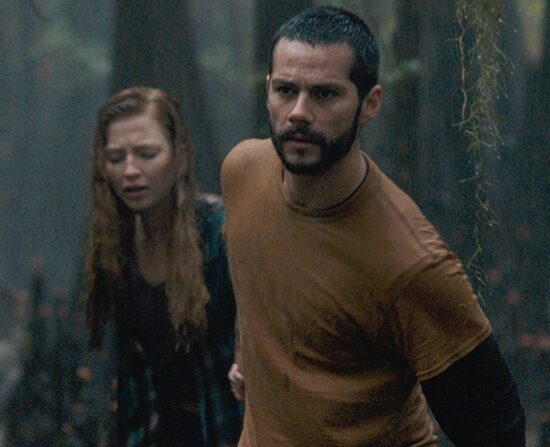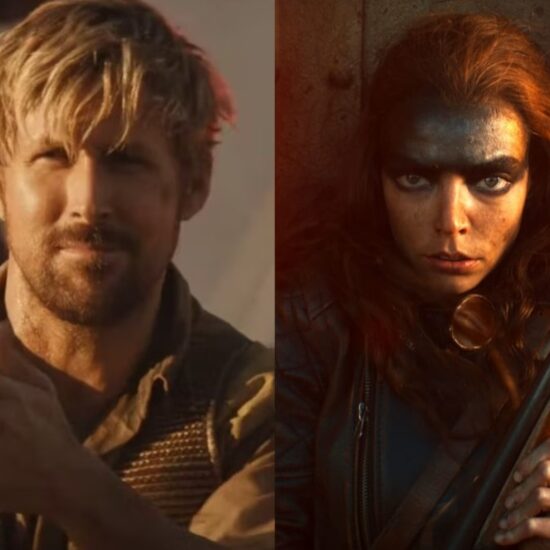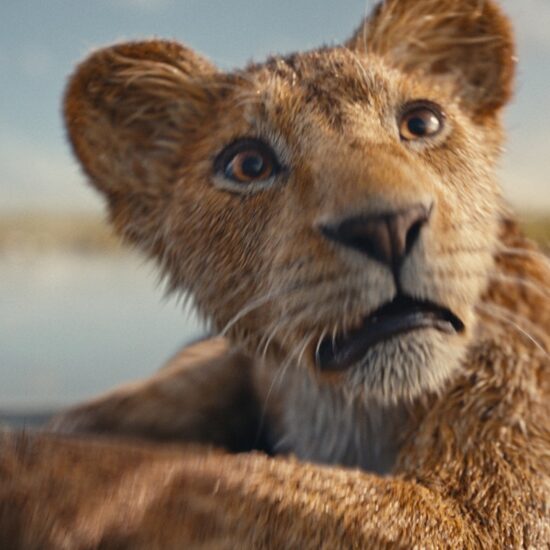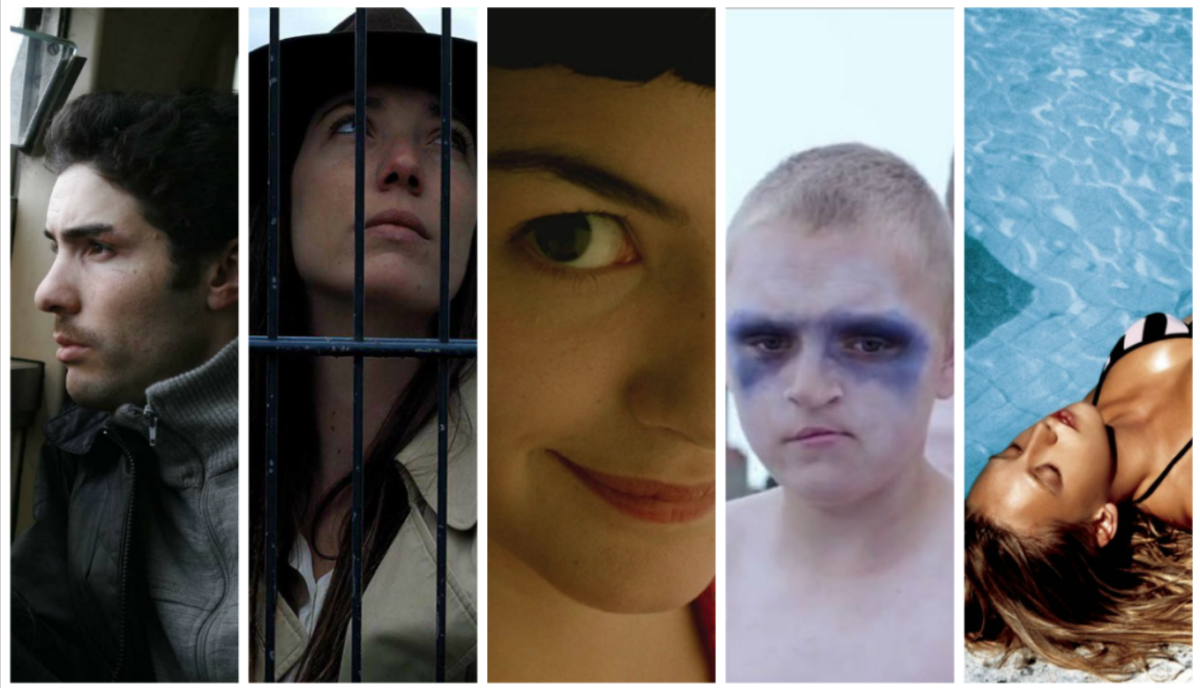
When thinking of the best French movies of the 21st century, there are some titles that leap to mind immediately, even if the past 23 years haven’t appeared to be as creatively fecund as the heady heights of the New Wave period. Celine Sciamma, François Ozon, Bruno Dumont, and Julia Ducournau have all produced stunning, instantly canonical works. But what’s interesting is to consider how expansive the idea of “Frenchness” in cinema has been this century: on the list below, Austrian Michael Haneke, Iranian Abbas Kiarostami, and American Julian Schnabel appear, with the main criterion for inclusion being simply the use of the French language.
Their inclusion does call into question a bit the idea of national cinemas. And yet, even in this highly interconnected, global 21st century, France singularly remains one of the medium’s most essential guiding lights. From the pioneer era of the Lumiere brothers to the revolutionary New Wave that expanded our understanding of film’s potential, to hosting the most important festival for world cinema each year, and being staunch defenders of the theatrical experience, France has always pushed the movies forward while reminding us what we love about them in the first place. No country did more to help propel cinema into the 20th century, and no country has done more to help sustain its integrity and its potential in the 21st.
This season finds French films back in the awards conversation with Trần Anh Hùn’s “The Taste of Things” (née “Le Pot-au-Feu” at the 2023 Cannes Film Festival) now serving as the country’s official pick for the 2024 Best International Feature Oscar. We’re not quite ready to call it one of the best French films of the 21st century (IFC Films will release it stateside this year), though we certainly loved it out of Cannes. France somewhat controversially opted for the sumptuous Juliette Binoche-starring period piece over Justine Triet’s actual Palme d’Or winner “Anatomy of a Fall.”
From sultry thrillers to mind-blowing 3D experiments and one unclassifiable Palme d’Or winner, these are the best French movies of the 21st century.
Christian Blauvelt, Ryan Lattanzio, Noel Murray, and Christian Zilko also contributed to this list.
39. “Other People’s Children” (2023)
Virginie Efira’s most notable follow-up to “Benedetta” couldn’t be more different. Where she wore her sexuality like a suit of armor in that film, in “Other People’s Children,” she’s all vulnerability, as internal as the medieval nun drama was an external explosion of camp. Directed by Rebecca Zlotowski, Efira plays a woman in 2020s Paris assessing her life choices as she’s on the verge of menopause. She decided against having children but a relationship with a single father, and her growing bond with his young daughter, gives her a taste of parenting. And when that growing bond suddenly ripped away, quiet heartbreak ensues about what might have been, without ever plunging toward histrionics. It’s one of the most powerful portraits of a woman in her 40s in recent memory, full of details that feel incredibly lived in. It’s also one of the best portraits of contemporary Jewish life in France that’s been delivered in a long time. Hopefully, more collaborations between Efira and Zlotowski are ahead. —CB
38. “Goodbye to Language” (2014)

“Godard forever!” So shouted one devout fan as the lights went down at the Cannes Film Festival before the world premiere of the reclusive French New Wave director’s latest mysterious work. The anticipation was warranted: For decades, Godard has continually showed the movie world how it’s done, with one cinematic mic drop after another that pushes every possible boundary of the medium by reinventing it from the ground up. With “Goodbye to Language,” he constructs a beguiling mashup of imagery that’s at once convoluted and brilliantly pointed, an illustration of the way that modern communication has collapsed in an era overrun by digital ephemera. His use of 3D technology is similarly overwhelming, but not devoid of purpose; experimenting with double exposure and overlapping images, he forces to viewers to experience visuals effects in a totally new way. Somewhere in the midst of this crammed assemblage, he stuffs in the story of a couple whose relationship is slowly falling apart. But the true star of “Goodbye to Language” is Godard’s innocent dog Roxie, who grows so mystified by the inanity of civilization that she flees to the countryside. It may be the closest thing we get to a late period mission statement from this secretive filmmaker, whose ambition has only deepened with time, as this endlessly rewarding provocation bears out. Godard forever, indeed. —EK
37. “La Sapienza” (2014)

The premise of the “The Sapience” (“La Sapienza”) could easily provide fodder for a clichéd indie drama: an estranged couple travels to the countryside in a desperate attempt to raise their weary spirits, bonds with a pair of troubled teens and by helping them work through their problems, finds a renewed sense of hope. Gag. But in the hands of French-American filmmaker Eugéne Green (“The Portuguese Nun”), whose movies blend understated storytelling with literary themes, “The Sapience” is anything but familiar. Instead, the writer-director crafts a work that’s both weighted with scholarly inquiry and an undercurrent of poignancy unlike anything else. The title refers to a definition of wisdom stretching back many centuries and applied in the works of baroque 17th century Roman architect Francesco Borromini, whose work becomes as much a character in the movie as the intellectuals at its center. Green’s merging of past and present results in a powerful blend of intellectual and emotional experiences that’s also a disarming deadpan comedy. Gorgeous to a fault, it’s the rare case of a cerebral narrative that manages to be life-affirming in the process. —EK
36. “The Man on the Train” (2002)

From 1989 to 2002, Patrice Leconte was one of the most electric and beguiling (and under-appreciated) filmmakers in the world. His career-defining hot streak may have peaked with 1999’s singularly romantic “Girl on the Bridge,” but it ultimately came to a boil with “The Man on the Train.” The wise and altogether wonderful story of a chance encounter between a retired teacher (the great Jean Rochefort) and an aging bank robber on the brink of a big score (French icon Johnny Hallyday), “The Man on the Train” wouldn’t prove to be Leconte’s final film, but it feels like it could have been — it’s possessed by the same wistful spirit that has defined so many of cinema’s great farewells. The friendship that forms between these two grizzled men is sweet but never sentimental, and the fraternal bond that they share over the course of a single weekend is as memorable as any love story. —DE
35. “Of Gods and Men” (2010)

From its early scenes, “Of Gods and Men” inhabits the sacred lives of its monastic subjects. The eight monks residing in a seemingly quaint North African mountain community go through the motions of their daily prayers, the ritualistic hymns echoing monotonously throughout their hallowed chambers. Providing medical assistance and spiritual counsel to their Muslim neighbors, they inhabit an untroubled world, but the tranquility is short-lived. The monks find their harmonious existence suddenly disrupted by bloodthirsty Islamic fundamentalists, and so begins the conundrum at the heart of the movie. Loosely based on the mysterious 1996 assassination of seven French monks in Algeria, Xavier Beauvois’ understated fifth feature takes liberties with that widely scrutinized incident, but its simplistic milieu exists out of time. Ignore the precise religious context and it stands perfectly well as a restrained look at personal convictions in the face of certain death. Each time a monk contemplates his fate, Beauvois implies a deeper process taking place beneath the surface. By keeping their eventual fate off-camera, he conveys the powerful idea that the full extent of the tragedy is unknowable, and it keeps the movie relevant to this day. —EK
34. “The Beat That My Heart Skipped” (2005)

Jacques Audiard became one of the most celebrated French filmmakers on the planet with “A Prophet” in 2009, but he had already established himself as one of the most compelling French filmmakers long before that. Riffing on (and greatly eclipsing) James Toback’s 1978 “Fingers,” 2005’s “The Beat that My Heart Skipped” is the kind of remake that justifies the very idea of remakes. A breathlessly tense thriller about a gifted musician (Romain Duris) who’s torn between a life of crime and a dream of becoming a concert pianist, Audiard’s remarkable fourth feature tells a raw gangland story with the precision of someone playing “The Mephisto Waltz.” Sexy, stressful, and elegant in a way that underworld sagas have seldom been since the days of Jean-Pierre Melville, “The Beat that My Heart Skipped” boasts Duris’ best performance, and it may very well still be Audiard’s best film. — DE
33. “Petite Maman” (2019)

Céline Sciamma’s characters open like pores soaked in hot water, and the hyper-real worlds around them — from the apartment complexes of contemporary Paris in “Girlhood” to the ravishing coast of 18th century Brittany in her masterpiece “Portrait of a Lady on Fire” — reveal themselves with such an acute sense of discovery that even the most everyday moments assume a life-altering charge. That’s never been more palpable than it is in Sciamma’s jewel-like “Petite Maman,” which finds the filmmaker literally returning to her roots for another exquisite coming-of-age story about a young girl on the precipice of some new self-understanding. Or would it be more accurate to call it a negation-of-age story? It’s true that Nelly grows up over the course of the movie, but — as Sciamma’s title suggests — the high-concept plot hinges more on Nelly’s mother getting smaller. Turning back into a dinosaur, so to speak. — DE
32. “Being 17” (2016)

A slow, shaggy, hyper-naturalistic coming-of-age drama that constantly returns to the sheer violence of becoming a man, André Téchiné’s “Being 17” is a movie that isn’t the least bit afraid to dwell on how hard it can be to become who you are. Or, in this case, how much harder it can be when you’re a boy who’s in love with his bully. Co-written by Téchiné and Céline Sciamma, the film is shared between two teen boys growing up in the emotionally vivid mountains of the French Pyrenees. Damien (Kacey Mottet Klein) is white, reckless and vaguely punchable. Thomas (newcomer Corentin Fila) is bi-racial, reserved and reflexively violent. They don’t seem to like each other very much — Thomas trips Damien in the middle of class for no apparent reason — but their mutual animus is rooted in private self-doubts. It’s extraordinary to watch the two young men grapple with their newfound proximity, as Téchiné lets his characters find themselves at their own pace. It’s up to the landscape between them to express their tangled lust, the snow dunes and the mountain fog, and they speak volumes. —DE
31. “House of Tolerance” (2011)

There have been countless French movies about prostitutes, but none feel remotely like Bertrand Bonello’s mesmerizing “House of Tolerance.” Set within the musky parlors and bedrooms of a Paris brothel at the turn of the 20th Century, this hermetically sealed film’s closest relative is Hou Hsiao-hsien’s “Flowers of Shanghai, as both films almost never step outside and both films are so thick with opium fumes that you can’t watch either of them without getting a little high yourself. The film may be a work of fiction, but its atmosphere is so palpable that watching it feels like stepping through a portal to the past. Spreading his attention across a number of different working girls, and paying closer attention to their individual pleasures and perils than any other man ever has, Bonello carves a perverse feminist masterpiece from a place where women were denied everything but their sexual power. It’s an empowerment tale as a narcotized cinematic experience, and it builds to an ending that’s every bit as bold and provocative as the film’s scarring first shot. — DE
30. “Faces Places” (2017)

Notions of finality and (im)permanence cast a long shadow over Agnès Varda’s moving, funny, life-affirming, and altogether wonderful “Faces Places,” which finds the legendary 88-year-old auteur teaming up with a semi-anonymous street photographer named JR for a whimsical tour of the French countryside. The plan is to drive from one bucolic village to another, invite the locals to pose in the van that JR has transformed into a mobile photo booth, and paste massive print-outs of the resulting portraits onto the environments their subjects call home. Varda loves the idea, she’s compelled to “photograph faces so they don’t fall into the hole of memory.” Varda was already a woman who was destined to leave her will on film, but it’s deeply beautiful (and tons of fun) to watch this great artist commemorate the blue-collar NPCs of rural France, these farmers and postmen and laborers who are unknown in their own time. Despite how that may sound, there isn’t a whiff of condescension to be found here. Varda and JR aren’t validating their subjects, but rather asking them to help corroborate the idea that images are a way of affirming our existence, of being bigger than our bodies. —DE
29. “La Vie en Rose” (2007)

Marion Cotillard’s transformation into Edith Piaf is one of the great star-making performances of the young century to date — and the platinum standard for all actors playing musical greats who lip-sync to their iconic recordings. Capturing her husky speaking voice, slight hunch, and overall frail demeanor, Cotillard channeled Piaf as someone who’s seen it all and too delicate for this world at the same time. That made her the first performer to win the Best Actress Oscar for a French-language performance. Yet “La Vie en Rose” is no actor’s showcase only. In Olivier Dahan’s hands, it’s a dynamic piece of cinema, too, with one of the most thrilling boxing sequences in recent memory — the great love of Piaf’s life was boxer Marcel Cerdan, who died in a plane crash in 1949 — one that underlines the musicality of the pugilistic arts, and the pugilistic overtones of the music business. —CB
28. “White Material” (2009)

With “Beau Travail” set in Djibouti, Claire Denis only made her filmmaking return to West Africa, following her 1988 debut “Chocolat,” with this simmering thriller that works as a particularly potent companion to her first film. What if the French settlers in 1950s colonial Cameroon stayed on past independence and into the 21st century? Isabelle Huppert delivers a magnificent portrait of duress as Maria, by any standard the matriarch of her settler family, and she’s hellbent on keeping their lives and livelihoods intact even as a civil war roils every aspect of their lives. She believes that this country, the place of her teenage son’s birth, is her country, too, and that dubious belief, the holdover sentiment of the colonizer, leads to catastrophe. Denis crafts an especially potent mood piece here: Huppert rides standing on the back of a bus after paying ever more extravagant tolls to the rebel forces that have set up checkpoints near her home; her son goes for a languid dip in a leaf-covered pool as a nearby child soldier considers taking his life. An empathetic triumph that also manages to be one of the defining portraits of how privilege blinds one to reality. —CB
27. “Stranger by the Lake” (2013)

Alain Guiraudie’s perversely ambiguous and sexy-scary “Stranger by the Lake” feels like a great throwback to ’80s and ’90s queer cinema, unafraid of the collision of criminality and gay sex and how the latter in most spaces is a subterfuge enterprise. Franck (Pierre Deladonchamps) is lonely and looking for a lover in all the wrong places — or at least this one particularly very wrong place, a lakeside cruising spot for gay men of all shapes and sizes. His searching, horny gaze lands on Michele (Christophe Paou), a handsome, who cuts a Burt-Reynolds-meets-Tom-of-Finland figure and looks and tastes like danger. After Franck witnesses Michele drowning his trade in the lake, he ignores all the flashing reds and instead falls deeper and more madly into lust. Shooting gay sex scenes like hardcore porn, Guiraudie opens a window onto a world often not even cracked by most filmmakers, only to promptly shut us out with the final slam of a harrowing cut to black. —RL
Continue Reading: The Best French Movies of the 21st Century, from ‘Amélie’ to ‘Cache’Next »











